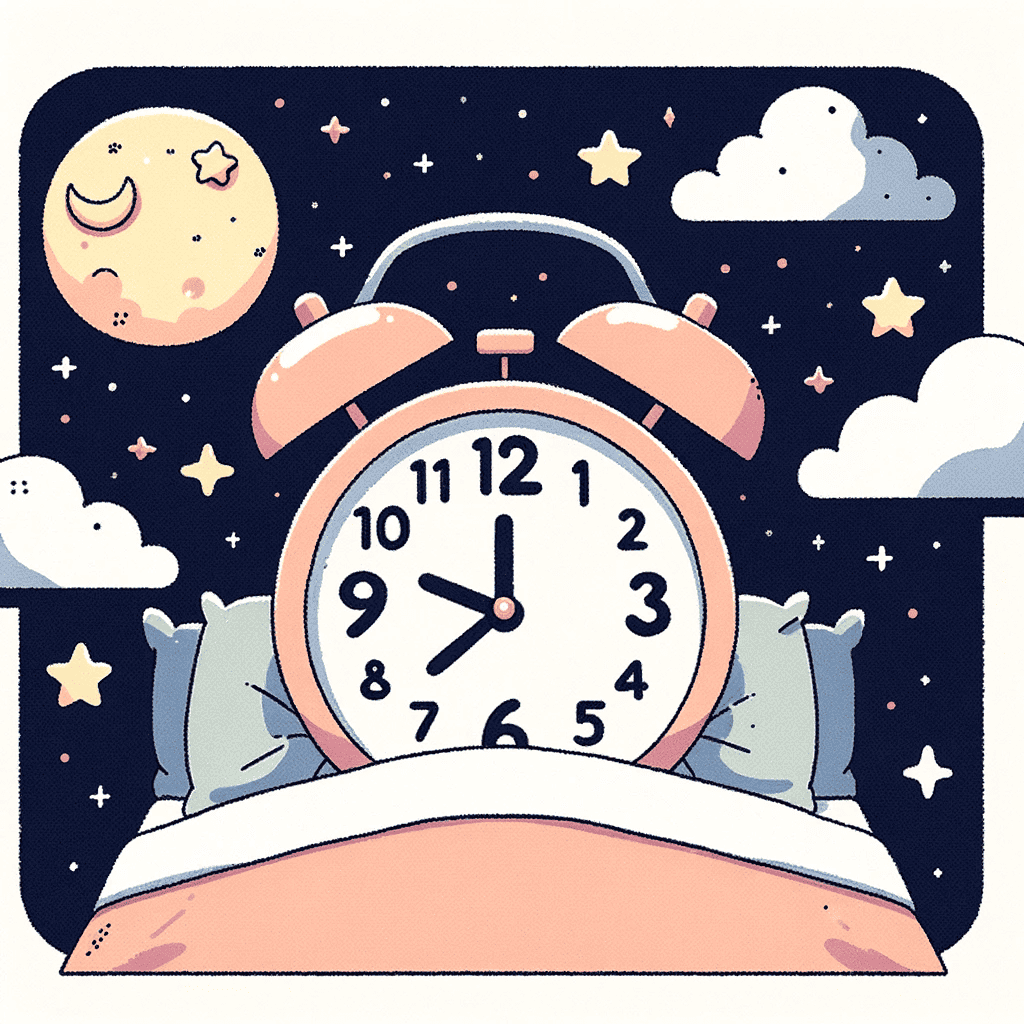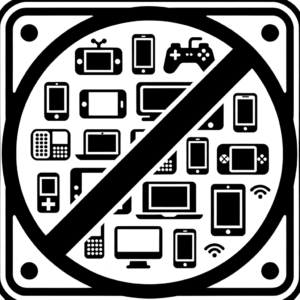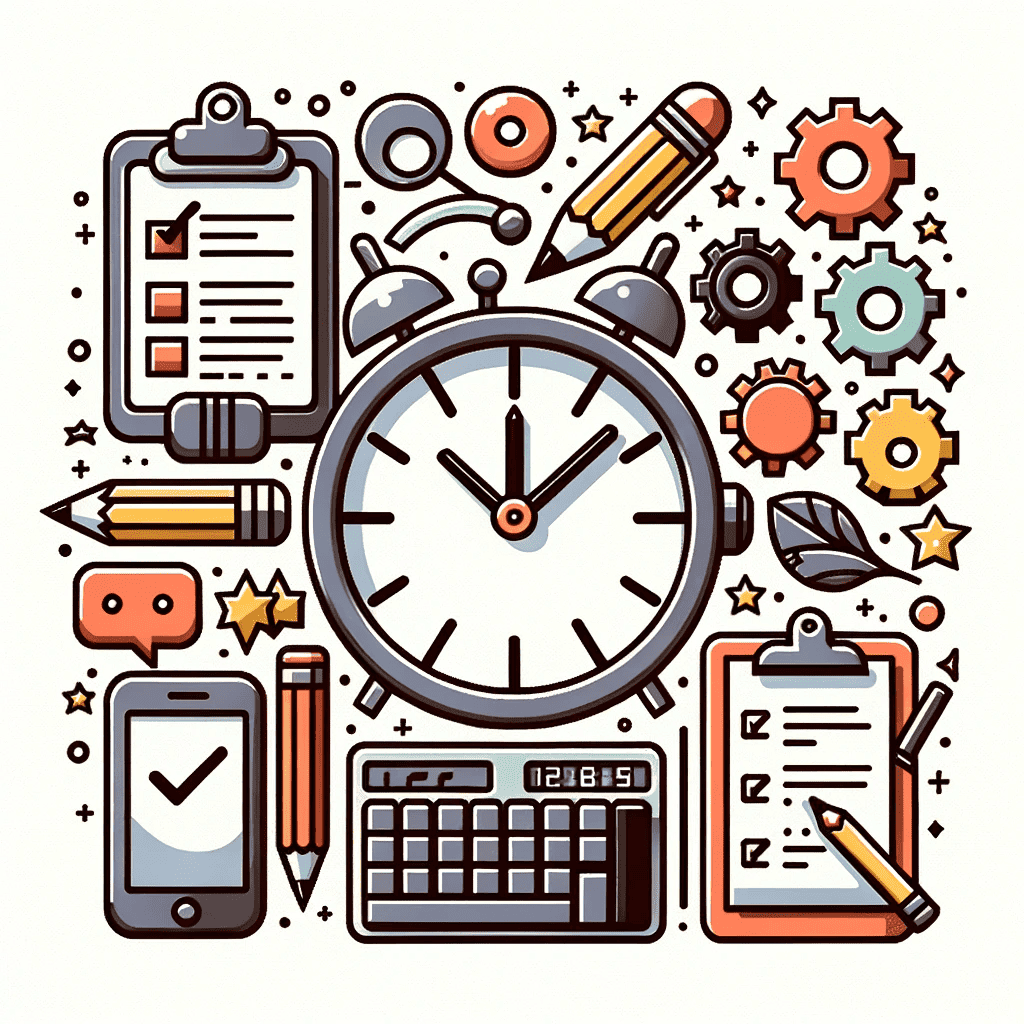Sleep management coaching and our tips on how to go to bed early
Have you ever felt the frustration of tossing and turning in bed, checking the clock every few minutes, and realizing that time is running out and sleep seems elusive?
You’re not alone. Many people find it difficult to get to bed early, which can harm health, well-being, and productivity.
Restful sleep is not just a necessity, it’s a pillar for a balanced and successful life.
This article on how to go to bed early is designed to guide you through concrete and easily applicable strategies to transform your night-time routine.
By following the advice offered here, you’ll be able to improve the quality of your sleep, and by extension, the quality of your life.
Key Points Table
| Theme | Description |
|---|---|
| Determining Bedtime | Identify a realistic bedtime and stick to it. |
| Avoiding Screens | Reduce screen exposure before sleeping. |
| Effective Time Management | Use tools and methods to better organize time. |
| Establishing an Evening Routine | Establish a relaxing routine before bedtime. |
| Understanding Your Chronotype | Adjust your schedule according to your biological rhythm. |
1 – Set your bedtime

The journey to restorative nights often begins with a simple but crucial step: determining a bedtime.
This is a fundamental commitment to better sleep quality and a more balanced life.
Here’s how you can proceed and why this step is important.
The Importance of a Fixed Bedtime
Setting a bedtime is not just an act of discipline, it’s a way to program your biological clock to signal your body that it’s time to relax and prepare for sleep.
This creates a routine that, over time, will become second nature, thus facilitating falling asleep.
- Regularity of the Circadian Rhythm : By going to bed and waking up at the same time each day, you help regulate your circadian rhythm, which can improve the quality of your sleep.
- Reduction of Fatigue : A regular bedtime can also help reduce fatigue and increase your energy level during the day.
How to Determine Your Bedtime?
Determining a realistic and beneficial bedtime requires some thought and understanding of your sleep needs.
Here are some steps to guide you:
- Evaluate Your Sleep Needs : Most adults need 7 to 9 hours of sleep each night. Assess how many hours of sleep seem optimal for you to feel rested and energetic.
- Consider Your Daily Schedule : Take into account your daily obligations and the time you need to wake up to determine a realistic bedtime.
- Test and Adjust : If you’re not sure of the ideal bedtime, do some tests. Try different bedtimes and note how you feel the next day.
- Seek Help from Technology : Use sleep tracking apps that can help you identify the ideal bedtime by analyzing your sleep cycles.
By putting these tips into practice and adopting a regular bedtime, you take an important step towards improving the quality of your sleep and, by extension, the quality of your life.
2 – Avoid Screens

In our hyper-connected world, screens are an integral part of our daily life.
However, their use before bedtime can harm the quality of our sleep.
In this section, we will explore the impact of screens on our sleep and how to minimize their adverse effects.
The Influence of Screens on Sleep
The screens of our electronic devices emit blue light that can disrupt our internal biological clock and inhibit the production of melatonin, the sleep hormone. Screens also promote sleep procrastination.
Here are the notable effects:
- Disruption of Circadian Rhythm: Exposure to blue light can delay falling asleep and alter sleep phases, leading to fragmented sleep.
- Reduction in Sleep Quality: Using screens before sleeping can reduce the depth and quality of sleep, leaving a feeling of fatigue upon waking.
Strategies to Reduce Screen Exposure
It is recommended to reduce screen exposure at least 1 to 2 hours before bedtime.
Here are some practical strategies to achieve this:
- Establishing a Screen-Free Routine: Create a screen-free evening routine. Opt for reading a book, writing in a journal, or having a conversation with a loved one. For reading, I advise personal development books.
- Using “Night Shift” Modes or Equivalents: Activate features on devices that reduce blue light, such as “Night Shift” on iPhones or “Night Mode” on Android devices.
- Replacing Digital Activities: Replace digital activities with offline activities in the evening. This could include board games, reading, or listening to music.
- Awareness and Education: Inform yourself and educate those around you about the impact of screens on sleep.
By applying these strategies, you can reduce your exposure to screens before bedtime, which is a step further toward the goal of going to bed early and improving the quality of your sleep.
If you feel like you’re spending too much time on your phone, I invite you to read my article on how to reduce smartphone dependency.
3 – Manage your time effectively

The way we manage our time daily has a direct impact on our ability to go to bed early.
Effective time management not only allows us to accomplish our tasks but also to preserve moments of relaxation before bedtime.
Discover how optimal organization can contribute to improving your sleep.
The Impact of Good Time Management on Sleep Quality
Time management influences the quality of our sleep in various ways:
- Stress Reduction: By planning and accomplishing your tasks effectively, you reduce the stress that can arise from unmanaged workloads, thus making it easier to fall asleep.
- Preservation of Relaxation Time: Good organization allows for preserving moments of relaxation before bedtime, essential for a peaceful transition to sleep.
Strategies for Effective Time Management
Effective time management strategies can help you structure your day and ensure you have enough time to relax before sleep.
Here are some tips:
- Task Prioritization: Identify and prioritize important tasks that require your immediate attention, and postpone less urgent ones for later.
- Setting Realistic Challenges: Set achievable goals to avoid work overload and the stress that can result from it.
- Using Planning Techniques: Adopt techniques like the Eisenhower matrix or “Time Blocking” to organize your day in a structured way.
- Avoiding Procrastination: Develop habits that help you avoid procrastination, such as the two-minute rule or using time tracking tools.
By following these tips and incorporating effective time management practices into your daily routine, you can create a balance between work, personal time, and sleep, which will contribute to achieving the goal of going to bed earlier.
If you wish to accelerate your success, you can also use the services of a time management coach.
To improve your productivity, you can also use the best time management applications.
4 – Create an evening routine

Establishing a soothing evening routine is a crucial step to successfully going to bed early and achieving quality sleep.
A well-structured routine signals to your body and mind that it’s time to slow down and prepare for sleep.
Here’s how to create an evening routine that promotes relaxation and prepares your body and mind for restorative sleep.
The Essence of a Relaxing Evening Routine
A well-designed evening routine can help transition from the hustle of the day to the calm needed for sleep. Here are some key elements of an effective evening routine:
- Physical Relaxation: Activities such as light stretching, yoga, or progressive muscle relaxation can help relax your body.
- Mental Relaxation: Set aside daily worries by reading, writing in a journal, or practicing meditation.
- Preparation for the Next Day: Prepare for the next day by planning your day, and preparing your clothes, or your lunch, which can help reduce anxiety and facilitate falling asleep.
Practical Suggestions for Developing Your Evening Routine
- Consistent Schedule: Try to follow your evening routine at the same time every day to strengthen the association between this routine and sleep.
- Conducive Environment: Create a conducive sleep environment by keeping your bedroom dark, cool, and quiet.
- Relaxation Techniques: Explore different relaxation techniques to find what works best for you. This may include deep breathing, guided meditation, or the use of relaxing essential oils.
- Avoid Caffeine and Heavy Meals: Avoid consuming caffeine or heavy meals close to bedtime, as they can disrupt your sleep.
By developing an evening routine that meets your personal needs, you create ideal conditions for restorative sleep and learn how to consistently go to bed early.
A well-thought-out evening routine is an investment in your overall well-being and sleep quality.
To go further on this topic, I invite you to read my article on how to create a routine and make it a habit.
5 – Take into account your chronotype

The chronotype is an often overlooked but crucial aspect to understand how our body reacts to different phases of the day. It reflects our natural preferences for sleep and activity.
In this section, we explore what a chronotype is, its impact on our sleep, and how to align it with our daily routine for better sleep quality.
What is a Chronotype?
A chronotype is an individual characteristic that determines your preferences for sleep and daytime activities.
Common chronotypes include “larks,” who are more active in the morning, and “owls,” who are more energetic in the evening.
If you don’t know your chronotype, I invite you to take a test to determine your chronotype.
Aligning Sleep Schedule with Chronotype
Aligning your sleep schedule with your chronotype can significantly improve the quality of your sleep.
Here are some suggestions to achieve this:
- Identifying Your Chronotype: Identify your chronotype by taking a test or observing your natural sleep and wake tendencies.
- Gradual Adjustment: If necessary, gradually adjust your bedtime and wake-up time to better match your chronotype.
- Task Planning: Schedule your important tasks during your peak energy hours, and relaxing activities in the evening to prepare for sleep.
How to Adjust Your Schedule According to Your Chronotype
- Evaluation and Adjustment: Evaluate the effectiveness of your adjustments and continue to refine your schedule to better match your chronotype.
- Consultation with a Sleep Specialist: If you have difficulties aligning your sleep schedule with your chronotype, consider consulting a sleep specialist who can provide personalized advice.
- Education and Awareness: Educate yourself about the importance of the chronotype and share this information with those around you to create an environment conducive to respecting your natural biological rhythm.
Understanding and respecting your chronotype is an essential step in improving the quality of your sleep and learning how to go to bed early.
By integrating this knowledge into your daily routine, you promote a harmonious alignment between your biology and your environment, conducive to restorative sleep.
What are the Best Apps for Time Management?
There are many apps for time management because each app meets different needs, and that’s why I’ve written a complete article on this subject. Discover now the best apps for managing time.
Discover an Excerpt of My Radio Participation on the Theme of Time Management
Conclusion
Learning to go to bed early is a journey that can greatly improve your overall well-being and the quality of your sleep.
The strategies outlined in this article, such as understanding your chronotype, establishing an evening routine, and effective time management, are pillars for establishing a healthy nighttime routine.
By adopting these practices and adjusting them according to your personal needs, you will progress towards the goal of going to bed early, thus promoting restorative sleep and a better quality of life.
This journey towards better sleep is also an invitation to a more balanced and harmonious life. Feel free to revisit these tips and adapt them over time to continue improving your sleep habits.
If you are interested in the topic of productivity, I invite you to discover all my articles on productivity.
If you are looking for tools to improve your time management skills, I recommend you read my article on the best time management apps.
If you want to take advantage of the expertise of a time management coach, write to us now using our contact form or call us by phone or on WhatsApp at +33 6 69 46 03 79.
Are you ready to take action?
Here are the rates for our coaching packages for individual clients:
- one month coaching package
- 3-month coaching package
- 6-month coaching package
- 1-year coaching package
Read this article in other languages
Français : Comment se coucher tôt : votre guide pratique pour des nuits réparatrices
Italiano: Come andare a letto presto: la guida pratica per dormire bene

